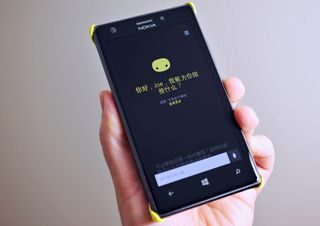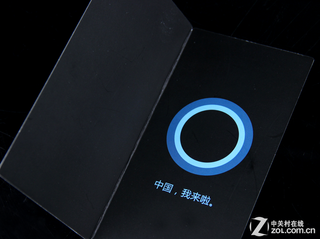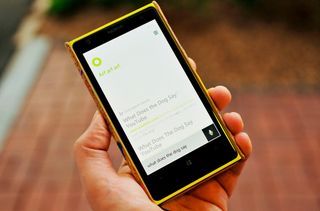Microsoft announces Cortana for China, UK with 'alpha' status for India, Australia, and Canada

Cortana heads to UK, China in beta, while India, Canada and Australia get opt-in alpha program
Tonight in Beijing, China, corporate vice president at Microsoft Joe Belfiore announced new Cortana rollout plans for Windows Phone 8.1 users, including a new 'alpha' program to speed up the deployment process. Furthermore, full details about Update 1 for Windows Phone 8.1 were also released, including early access starting next week.
As expected, China and the UK are now getting access to Cortana on a beta status, with substantial customization done for both countries, especially in China where some significant changes to the UI of Cortana have taken place. Additionally, India, Australia, and Canada are now part of an "early adopter program" where users can "opt-in and…try Cortana using English language models from the US and the UK."

China and "Xiao Na"
China is a unique testing ground for Cortana and presented some unique cultural challenges for the development team. Cortana, nicknamed "Xiao Na", works the same way as the current US version, but there are some unique customizations to better suit the Chinese populace. One instance of this change is an optional "alternative form" where instead of being a bouncing blue ball, Cortana has two eyes and "face". Microsoft tells us this has to do with eye contact being necessary in that culture for these types of applications. Moreover, Cortana has some other unique abilities in China, including:
- Chinese (Mandarin) in voice, text, and speech
- Specialized suggestions like air quality information in weather cards, information about driving restrictions, and the ability to track local TV shows and celebrities
- Cortana can look up English words in the Bing Dictionary for people looking to brush up on their English
UK and Cortana finally meet
The UK is also now getting its own customized version of Cortana, with regionalization implemented to better suit the British market, including:
- UK spellings and pronunciations
- Bing-provided local data on sports teams (for the EPL), the London Stock Exchange, commuter conditions, and more
- Localized voice, accent and personality for the UK

Minor updates coming to US users too
Not to be left out, those in the US are seeing some recent changes to Cortana, which we have documented over the last few days. Besides references powered by Foursquare and app recommendations, Microsoft is announcing the following new additions to Cortana:
- New natural language scenarios
- Snooze times for reminders
- Additions to her personality e.g. impressions
- Now answers 'Where am I?' and related questions
- Cortana hands-free in your car for phones connected to car Bluetooth kits that are integrated with your contacts list (If your car kit is integrated with your contacts, you can now treat Cortana as a contact to invoke her, simply saying "Call Cortana" and then talking to her as you normally would.)

It is clear from Microsoft actions that Cortana is a high priority release for them, and community feedback is a driving factor in that decision. Users demanding access to Cortana is causing Microsoft to shift resources to speeding up deployment globally and the more customers opt-in, the more data and feedback the Cortana team can absorb, ensuring that those programs continue.
Further release plans for Cortana going forward are currently unknown, but it is evident that if these alpha scenarios see high user-adoption, Microsoft could continue to rollout Cortana on a provisional basis in more regions.
Get the Windows Central Newsletter
All the latest news, reviews, and guides for Windows and Xbox diehards.
Stay tuned for more coverage on Cortana, including answers to your questions to the Cortana team about the challenges in going international!
Source: Windows Phone Blog

Daniel Rubino is the Editor-in-chief of Windows Central. He is also the head reviewer, podcast co-host, and analyst. He has been covering Microsoft since 2007, when this site was called WMExperts (and later Windows Phone Central). His interests include Windows, laptops, next-gen computing, and watches. He has been reviewing laptops since 2015 and is particularly fond of 2-in-1 convertibles, ARM processors, new form factors, and thin-and-light PCs. Before all this tech stuff, he worked on a Ph.D. in linguistics, watched people sleep (for medical purposes!), and ran the projectors at movie theaters because it was fun.
